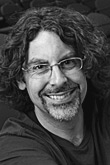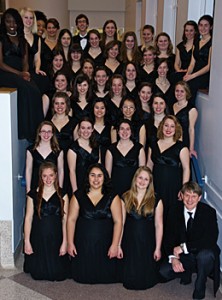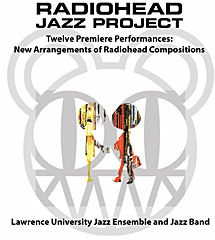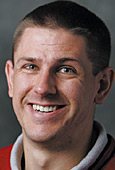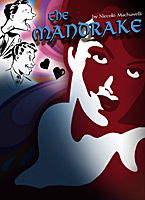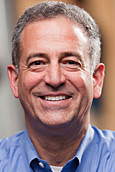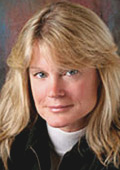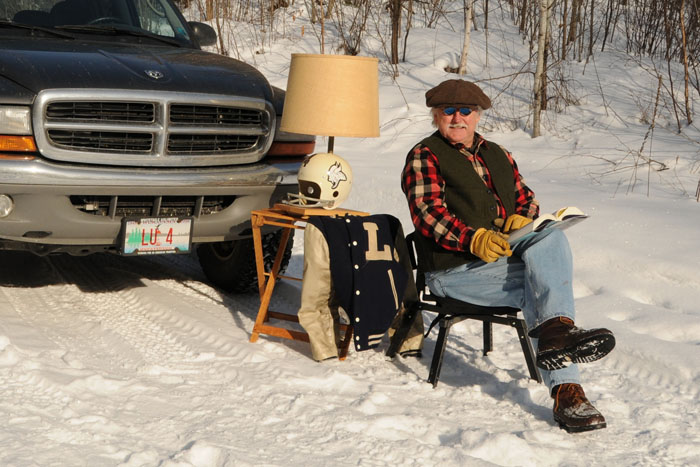A new documentary for the PBS’ Emmy Award-winning series “American Masters” that explores the life and legacy of revered naturalist, author and scientist John Muir has Lawrence University fingerprints all over it.
Lawrence will host a special screening of “John Muir in the New World,” Sunday, March 27 at 3 p.m. in the Warch Campus Center cinema. Emmy Award-winning filmmaker Catherine Tatge, a 1972 Lawrence graduate who wrote, produced and directed the film, will be on hand to discuss the film with audience members following the screening, which is free and open to the public.
In honor of Earth Day, the 90-minute documentary will be broadcast nationally on PBS Monday, April 18 at 8 p.m. (CDT) as part of the “American Masters” 25th anniversary season. The film made its world premiere Feb. 27 at the Green Bay Film Festival.
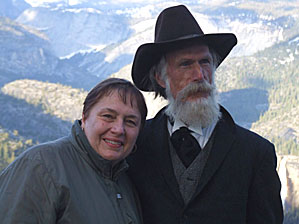
Filmed in high definition, the documentary uses re-enactments to depict the life of the revered environmentalist, who was instrumental in creating the national park system and founded the Sierra Club. The documentary was shot on the very landscapes that shaped Muir’s life: the Wisconsin woods of his childhood, the path of his incredible 1,000-mile walk to the Gulf of Mexico, the California fruit ranch where he lived with his wife and daughters, his beloved Yosemite Valley and the Alaskan wilderness.
Tatge conducted extensive research for the film, enlisting a team of experts, including Emmy-winning sound recordist and international acoustic ecologist Gordon Hempton, “to ensure the accuracy and integrity of everything we captured on film, right down to every plant specimen and bird call.”
Numerous other Lawrence individuals also were involved in the film. Garth Neustadter, a 2010 Lawrence graduate, composed the documentary’s score, which was performed by Lawrence Conservatory of Music students. Stephen Anunson, also a 2010 graduate, served as the location manager for the Wisconsin scenes of the film. Anunson also recruited Professor of Anthropology Peter Peregrine and current senior Mark Hirsch as actors for the film. Peregrine and Hirsch portrayed Muir’s stern, Bible-reading father and the 19-year-old Muir during his college years at the University of Wisconsin, respectively.
Katie Langenfeld, another 2010 graduate and junior Ali Scattergood served as production assistants, while seniors Katy Harth and Naomi Waxman assisted with costumes for the Wisconsin shoot.
Tatge recalled some of her own experiences as an undergraduate at Lawrence when she considered incorporating students in the filmmaking process.
“I remembered how many talented people I met while I was at Lawrence,” said Tatge, the recipient of an honorary doctorate from Lawrence in 2006. “I just thought this would be a great opportunity for students to be involved in the documentary and then they’d leave Lawrence with a pretty substantial credit to start off their lives. They didn’t disappoint me.”
Tatge said the project helped reconnect her to her alma mater.
“I feel that it’s a two-way street. It keeps me fresher to have young people involved,” she said. “And it’s a great opportunity for Lawrence students to learn something about the filmmaking business. I’m thinking of other things I can do with other projects, which is very exciting for me.”
The Scottish-born Muir was one of the first nature preservationists in American history, inspiring others through his writing and his advocacy to keep the wilderness wild. During his lifetime, he was instrumental in the preservation of the Yosemite Valley, the sequoia groves of California and the glacial landscapes of Alaska.
“It’s incredible what we owe to John Muir and, in our era of Katrina and oil spills, how very much we should revere his message today,” said Susan Lacy, series creator and executive producer of “American Masters,” a seven-time winner of the Emmy Award for Outstanding Primetime Non-Fiction series.
